
PHNOM PENH, April 25 (Xinhua) -- The World Health Organization (WHO) on Thursday launched a regional framework to combat drug artemisinin-resistant malaria in the Greater Mekong Subregion of Southeast Asia.
Artemisinin is the frontline drug in the fight against malaria. WHO said the emergence of resistance in Cambodia, Myanmar, Thailand and Vietnam poses a serious global health threat.
Speaking at the launch of the Emergency Response to Artemisinin Resistance in the Greater Mekong Subregion, Dr. Shin Young-soo, WHO Regional Director for the Western Pacific, said the 3-to-4- year program would cost about 400 million U.S. dollars, and the Global Fund has committed to providing 100 million U.S. dollars to the plan.
He said the framework would provide high-quality strategic assistance to beat artemisinin resistance and it highlighted key areas where action was urgently needed to contain resistance and to move towards eliminating resistant parasites.
"This is critical not only for the six countries in the Greater Mekong Subregion, but also to the entire Western Pacific Region," he said.
The six countries in the Greater Mekong Subregion are Cambodia, Myanmar, Thailand, Vietnam, Laos and China.
Meanwhile, Dr. Shin called for support from the very highest level of governments in order to bring together all the parties that deal with complex issues -- such as how to treat migrants and other hard-to-reach populations.
He said in addition to the framework, the WHO launched a regional hub in Phnom Penh, the capital of Cambodia, to provide coordination and technical support for the intensified containment efforts.
Princess Astrid of Belgium, special representative of the Roll Back Malaria Partnership, said at the launch that in recent years, the world has achieved great progress against this preventable and treatable disease, saving millions of lives along the way.
"Now, we are at the crossroads in our efforts," she said. " Financial challenges and the emergence of artemisinin resistance in the Greater Mekong Subregion threaten the hard-won gains we have made."
She said the potential spread of this resistance could leave the estimated 219 million people around the world infected by malaria each year -- of which 30 million are in the Asia-Pacific -- with no effective course of treatment.
Cambodian Minister of Health Mam Bunheng said death toll from malaria in Cambodia has sharply declined from 151 deaths in 2010 to 93 deaths in 2011 and 45 deaths in 2012.
"It is a pride for Cambodia in the fight against the disease, but we are still facing a continuing challenge of emerging malaria drug resistance, especially in border areas," he said at the event. "Failing to contain and control this resistance will have serious implications for Cambodia."
He said Cambodia set its goal to eliminate artemisinin resistance by 2015 and entirely eliminate malaria by 2025.
According to the WHO, artemisinin-based combination therapies ( ACTs) are the most effective anti-malarial treatments available today, and they have been central to recent successes in global malaria control.
Artemisinin-based combination therapies combine artemisinin -- a traditional Chinese herbal drug -- with another anti-malarial drug, it said, adding that the artemisinin component kills the majority of parasites at the start of the treatment, while the partner drug clears the remaining parasites.
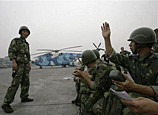
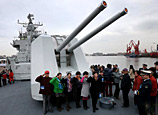



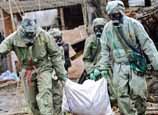


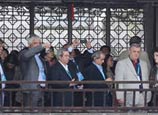
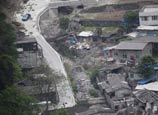






 Giant pandas safe in quake-hit zone
Giant pandas safe in quake-hit zone


![]()
